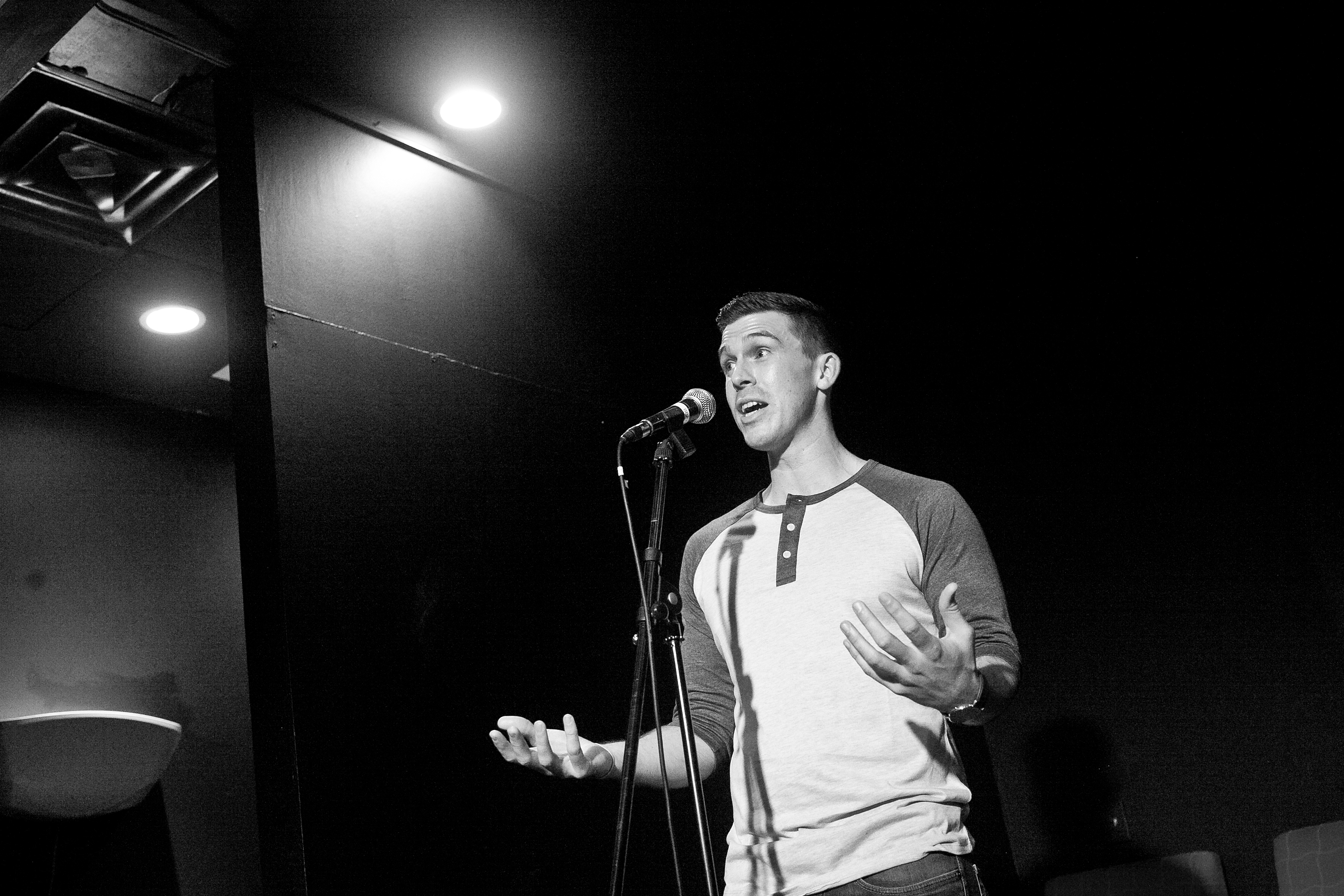13 February 2017
We are all citizens of science
Posted by Shane Hanlon
By Shane M Hanlon
“Science surrounds us.”
“In order to be a good science communicator, you must first be a good science consumer.”
“SciComm: you don’t have to like it but you need to be able to do it.”
These are all things I’ve said in the age of Twitter where space is at a premium and effective messaging is critical. They pertain to the different hats that I wear – producer and co-host of the science storytelling organization The Story Collider, adjunct professor at The University of Pittsburgh, and scicomm trainer & educator with Sharing Science here at AGU.
I’ve been thinking a lot lately about messaging in tiny bites. We as a society were already trending in the direction of more info in less space (embraced by the new @AGU_SciComm Twitter account). Especially within the scientific community, more and more hashtags for science have been popping up. There’s #actuallivingscientist in response to the fact that most Americans can’t name a single living scientist. Recently, #sciengage popped up encouraging folks to talk about the ways that they engage with members outside of the scientific community. This was especially encouraging considering my line of work.

Some #sciengage inspiration.
But all of these hashtags got me thinking about the sometimes oftentimes disconnect between science and society. That’s what these Twitter campaigns aim to remedy, right? And maybe they do (for example, I posted an article on my Facebook account about this and someone commented “I know you!”, which was perfect). There are entire fields of study on the science behind science communication, a lot of which influences my work in my various endeavors.
I see this disconnect from both ends. At AGU I work with scientists to help them distill and disseminate their science to broad audiences. At Story Collider, I do work with scientists, but I also work with non-scientists to help them discover how science has affected all of us, how science surrounds us. I think (or at least I hope) that seeing science from many angles helps me to be a better ambassador for something that shouldn’t be politicized, shouldn’t be advocated against, shouldn’t be constantly doubted.

Hosting a Story Collider show in DC. Photo credit: Michael Bonfigli
I recently saw a discussion about the phrase “citizen science” and its aptness in adequately explaining its definition, i.e. does “citizen science” actually make sense for the actions it describes. My first thought was, “…well, we are all citizens of science.” That tidbit, that catchphrase, really stuck with me, not just because it’s a nice hook, but because it’s true.
I live and breathe science. In many ways, I’m defined by it. Fortunately, you don’t have to possess my level of commitment (or obsession depending on your viewpoint) to realize that science should be cherished and championed, not condemned and discouraged. We as scientists are in a unique position to show everyone that science is fascinating, science is wonderful, #scienceisessential (that’s an AGU one). But let’s also encourage non-scientists to talk about, and acknowledge, science in their everyday lives. The computer you’re reading this on? Science. The lunch you’re eating? Science. The 40°F temperature shifts that we’re seeing? Science.
We are all citizens of science. Let’s spread that message. Oh, and keep making some great hashtags.
-Shane M Hanlon is an AGU Sharing Science (@AGU_SciComm) Specialist and producer/co-host of the DC chapter of The Story Collider. Find him @ecologyofshane.


 The Plainspoken Scientist is the science communication blog of AGU’s Sharing Science program. With this blog, we wish to showcase creative and effective science communication via multiple mediums and modes.
The Plainspoken Scientist is the science communication blog of AGU’s Sharing Science program. With this blog, we wish to showcase creative and effective science communication via multiple mediums and modes.